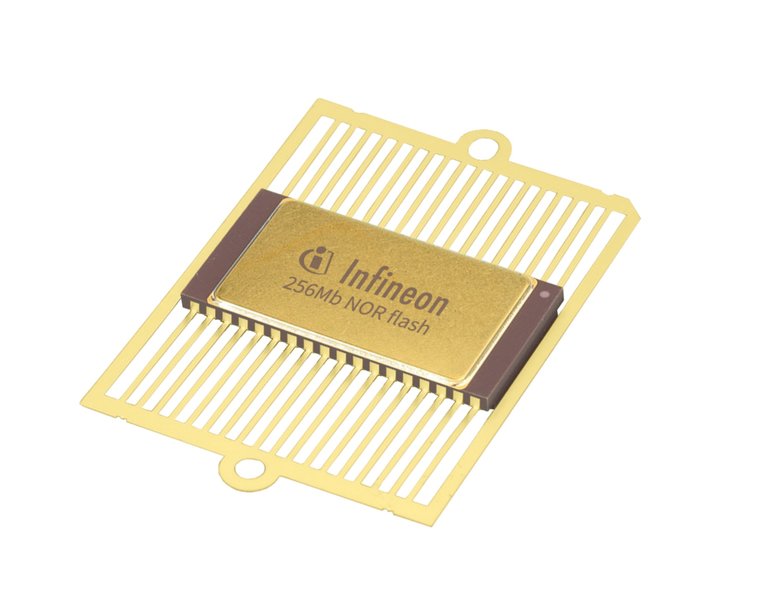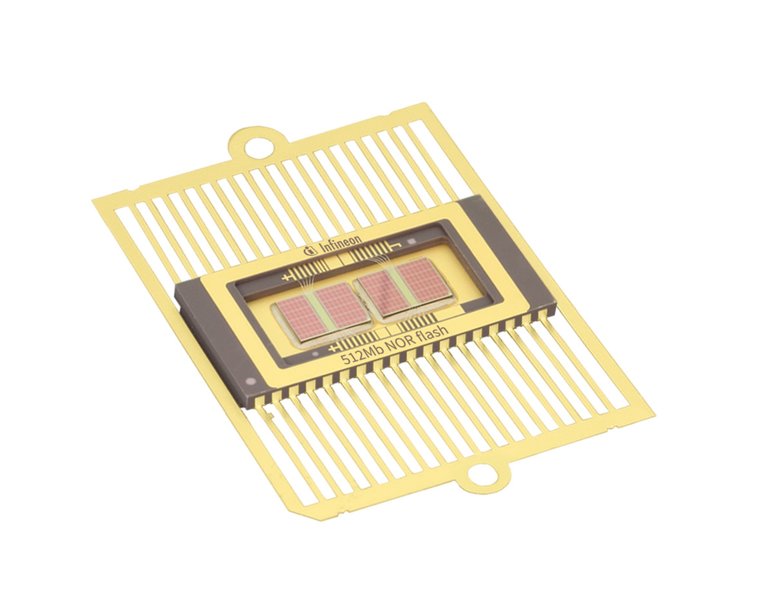electronics-journal.com
20
'21
Written on Modified on
Infineon launches industry’s first radiation-tolerant, QML-V qualified NOR Flash memory for space-grade FPGAs
Space-grade field-programmable gate arrays (FPGAs) require reliable, high-density non-volatile memories that contain their boot configurations.

To address the growing need for high-reliability memories, Infineon Technologies LLC, an Infineon Technologies AG (FSE: IFX / OTCQX: IFNNY) company, today announced the industry’s first high-density radiation-tolerant (RadTol) NOR Flash memory products qualified to MIL-PRF-38535’s QML-V flow (QML-V Equivalent). The QML-V flow is the highest quality and reliability standard certification for aerospace-grade ICs.
Infineon’s 256 Mb and 512 Mb RadTol NOR Flash non-volatile memories deliver superior, low-pin count, single-chip solution for applications such as FPGA configuration, image storage, microcontroller data and boot code storage. When used at higher clock rates, the data transfer supported by the devices match or exceed traditional parallel asynchronous NOR Flash memories while dramatically reducing pin count.
The devices are radiation-tolerant up to 30 krad (Si) biased and 125 krad (Si) unbiased. At 125°C, the devices support 1,000 Program/Erase cycles and 30 years of data retention and at 85°C 10k Program/Erase cycles with 250 years of data retention.

As a leader in space-grade memory products, Infineon leveraged the 65 nm floating gate Flash process technology to develop the RadTol 256 Mb quad-SPI (QSPI) and 512 Mb dual quad-SPI NOR Flash. Both are featuring 133 MHz SDR interface speed. The 512 Mb device comprises two independent 256 Mb die that fit side by side in a single package solution.
This provides flexibility for designers to operate the device in dual QSPI or single QSPI mode on either die independently, offering an option to use the second die as a backup solution. Infineon is collaborating closely with leading FPGA ecosystem companies such as Xilinx on space-grade applications.
“Our radiation-tolerant dual QSPI non-volatile memories are fully supported by the latest space grade FPGAs. They enable a superior, low pin count, single chip select solution to configure processors and FPGAs,” said Helmut Puchner, VP Fellow of Aerospace and Defense at Infineon Technologies LLC. “The entire image for the Xilinx Kintex ® UltraScale XQRKU060, for example, can be loaded in about 0.2 seconds in dual quad mode.”
The NOR Flash devices can be programmed in-system through the FPGA or through a standalone programmer, offered in the same 36-lead ceramic flat package. Infineon’s development kit and software further enable easy design implementation.
Availability
The RadTol NOR Flash devices are available in a 24x12 mm 2 36-lead ceramic flatpack package. The devices support temperature grades from -55°C to 125°C, with SEU rate < 1 x 10 -16 upsets/bit-day, SEL > 60 MeV.cm 2/mg (85°C), SEFI > 60 MeV.cm 2/mg (LET) and SEU threshold > 28 Mev.cm 2/mg (LET). More information is available at www.cypress.com/products/radiation-hardened-memory.
www.infineon.com

